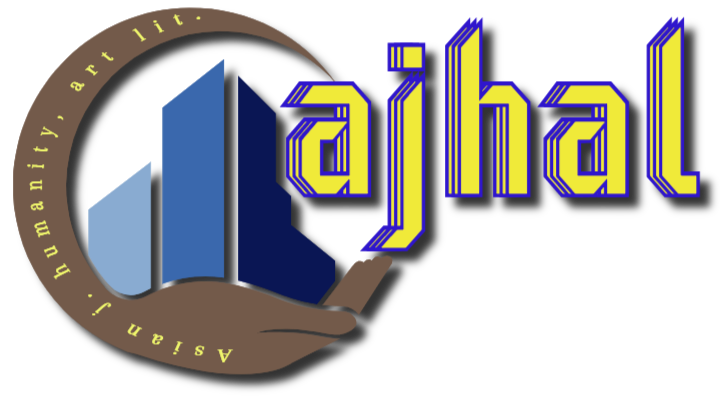Levity, an Eccentric Form in Modern Poetry, Unveils Confused Emotion and the Absence of Central Religion
DOI:
https://doi.org/10.18034/ajhal.v9i1.689Keywords:
Levity, Eccentric Form, Modern Poetry, Confused Emotion, Central ReligionAbstract
It is widely acknowledged that the inherent component of emotional episodes and modern points of interest lies with the theory of the 'unconscious' state of mind and its influences on human nature. Contemporary poems portray the dilemma of the age in minute analysis of moral & spiritual ailments of lost & misdirected individuals and their anxieties. The objective of the essay is to demonstrate the nature and quality of the mind the poets portrayed. The modern era is a period of disintegration and interrogation following the choice between different ideas and philosophy, religion and science, capitalism, and socialism. And the artifice, levity, is a suitable instrument employed to propagate the complexities and intricacies of contemporary Western urban life to favor the variety of literary techniques such as intertextuality, allusion, juxtaposition, discontinuity, fragmentation, self-consciousness, ambiguity, and emphasis on de-structured subjectivity. Our purpose is to mark the quest of poets to exhibit poor fascination of mind unable to face challenges of the existing world resulting from a lack of spiritual accomplishment or weakening religious consciousness followed by the rise of frivolous persuasion, an improvised task that modern poets endeavored.
Downloads
References
Bharadwaj, S. (2018). Yeats’s “Sailing to Byzantium”: The Poetic Process of Impersonal Art. International Journal of Applied Linguistics and English Literature, 7(5), 180-196. https://doi.org/10.7575/aiac.ijalel.v.7n.5p.180 DOI: https://doi.org/10.7575/aiac.ijalel.v.7n.5p.180
Brater, E. (1975). W. B. Yeats: The Poet as Critic. Journal of Modern Literature, 4(3), 651-676. https://www.jstor.org/stable/3831046
Browning, R. (1855). Childe Roland to the Dark Tower Came. https://rpo.library.utoronto.ca/content/childe-roland-dark-tower-came DOI: https://doi.org/10.1093/oseo/instance.00121892
Eliot, T. S. (2022). The Waste Land and Other Poems: A Norton Critical Edition. https://wwnorton.com/books/9780393679434
Mandal, A. & Modak, A. (2013). The Love Song of J. Alfred Prufrock: A Postmodern Poem with a Postmodern Hero. The Criterion: An International Journal in English, IV(I), 1-6. https://www.the-criterion.com/V4/n1/Annesha.pdf
Osborne, C (1980). W. H. Auden: The Life of a Poet. Literary Review, p280. https://literaryreview.co.uk/a-shilling-life
Oxford Learner's Dictionaries. https://www.oxfordlearnersdictionaries.com/definition/english/religion/
Pound, E. (1934). ABC of Reading. Goodreads, p139. https://www.goodreads.com/book/show/145108.ABC_of_Reading
The Editors of Encyclopaedia Britannica. Religion. https://www.britannica.com/topic/religion
Downloads
Published
Issue
Section
License
Copyright (c) 2022 Md. Lutful Arafat

This work is licensed under a Creative Commons Attribution-NonCommercial 4.0 International License.















